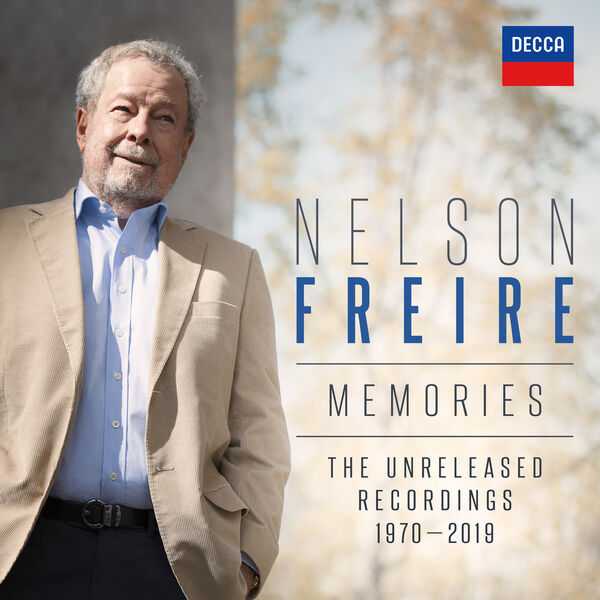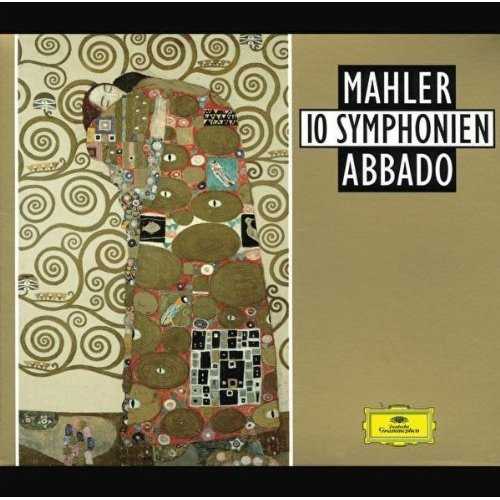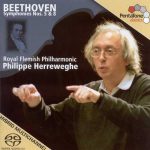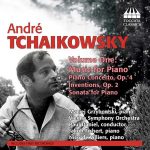
Composer:
Performer:
Orchestra:
Conductor:
Format: FLAC (tracks)
Label: Decca
Catalogue: 4853136
Release: 2022
Size: 666 MB
Recovery: +3%
Scan: yes
Gluck: Orfeo ed Euridice
01. Mélodie (Dance of the Blessed Spirits) (Arr. Sgambati for Piano)
Bach: Cantata BWV147 ‘Herz und Mund und Tat und Leben’
02. Jesu Joy of Man’s Desiring (Arr. Hess for Piano)
03. Beethoven: Andante Favori in F, WoO 57
Beethoven: Piano Concerto No. 4 in G major, Op. 58
04. I. Allegro moderato (Cadenza: Saint-Saëns)
05. II. Andante con moto
06. III. Rondo (Vivace) (Cadenza: Saint-Saëns)
Beethoven: Bagatelles, Op. 119
07. No. 11, Andante, ma non troppo
08. Strauss: Burleske for Piano and orchestra in D minor, AV85
09. Debussy: La plus que lente, CD 128
Villa-Lobos: Bachianas Brasileiras No. 4 for piano or orchestra
10. I. Prelúdio (Introdução)
Bartók: Piano Concerto No. 1, BB 91, Sz. 83
11. I. Allegro moderato – Allegro
12. II. Andante
13. III. Allegro molto
Brahms: Piano Concerto No. 2 in B flat major, Op. 83
14. I. Allegro non troppo
15. II. Allegro appassionato
16. III. Andante – Più adagio
17. IV. Allegretto grazioso – Un poco più presto
Brahms: Klavierstücke, Op. 118
18. 2. Intermezzo in A
Rare is the artist whose leftovers would end up on best-seller lists, but this one from pianist Nelson Freire did just that in the autumn of 2022. Part of the reason is that the unexpected loss of Freire the previous year is still keenly felt. Also, his recorded output was less than prolific, and many Freire fans will jump on this release sight unseen, but the biggest reason is that there are indeed some lost gems, mostly small ones. The album offers recordings in three categories. First, there is a short session recorded in Berlin in 2014, apparently part of a project that never came to fruition. These include the miniatures that Freire always did so well; the balance of voices in the Myra Hess piano transcription of Bach’s Jesu, joy of man’s desiring is nothing short of miraculous. The Beethoven Andante favori, WoO 57, was apparently not recorded by Freire anywhere else. Second, there are three concertos recorded during radio broadcasts in Germany in the 1970s and ’80s. The sound on these is reasonable considering the limitations of the era, and the Brahms Piano Concerto No. 2 in B flat major, Op. 83, especially, is a fine illustration of Freire’s art, with the percussive half-steps in the first movement done in such a way that they reverberate through the whole work. Finally, there are miscellaneous short pieces that have never appeared on CD before; one can understand, with the likes of Debussy’s La plus que lente, why Decca wanted to rescue these from the historical scrap heap. Freire fans will need no encouragement here, and there is a lot of pleasure for the general listener.



